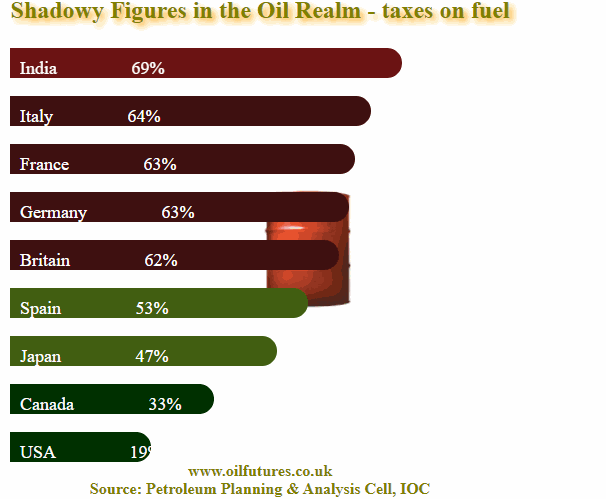The steep rise in oil price, relative to what it was
around this time last year, has led to a brewing storm in the sphere of global
politics with the OPEC+ at its centre.
The governments in question – or politicians for
that matter – are looking for a scapegoat and they appear to have got a herd of
them in their hour of need – the OPEC+.
With the price of crude oil at the current level,
the oil producers just manage to balance their books, having suffered for years
facing the plummeting oil price since 2014.
There were thousands of job losses; research and
exploration activities came to a screeching halt without a warning out of the
blue; hundreds of major projects were put on hold; millions of workers from
poorer countries of Asia and Africa were compelled to stare at the grim pit of
uncertainty and countries they hail from lost a vital stream of revenues that
was essential for survival.
In short, the ‘collateral damage’ on the poorer
countries in Asia and Africa was conveniently eclipsed by the disproportionate
focus on the economic blow suffered by the major oil producing nations.
The collective action, coupled with teeth grinding
determination, by the OPEC+ to keep the production at the current level, come
what may, has come under intense
criticism by certain countries, especially after their recent meeting on March
4.
The countries in question hoped that OPEC+ would
increase the production in order to bring the price of crude oil down and much
to their dismay, it did not happen.
On the contrary, not only did OPEC+ maintain the
current production level, but also let some nations increase the price of crude
oil for Asia and the US.
These developments already created a diplomatic rift
between Saudi Arabia and India, which usually used to be allies in the region,
with the demand by the latter to increase the production.
That demand fell on deaf ears and instead, Saudis asked
India to use the oil reserves that it filled up when the price was so low
during the pandemic last year – until they ran out of storage capacity.
On the surface, the OPEC+ appears to be impervious
to the global outcry that stems from the rising crude oil prices; if you scratch
the surface of the oil drum that is being relentlessly beaten at present,
however, a long list of shadowy figures emerges from below that usually is not
in the public domain: huge taxes levied on fuel by countries that vary from
nation to nation, something we hardly talk about.
This is something that the top players of the OPEC+
are aware of and they maintain a deafening silence on it without politically
damaging their allies.
Indian oil minister, who became the voice of those who
want higher oil production recently, has come under fire from regional governments
over the taxes levied on fuel – a staggering 69%.
In addition, regional governments in India add their
own taxes on top of that and distribution cost, coupled with commission for companies
involved, also add up, which in turn
makes fuel pretty expensive in India.
Even in Europe, the drop of oil price during the
pandemic did not materialize in the same proportion at the pumps owing to high
taxes.
In this context, the viable substitute for these
taxes on fuel, when Europe plan to turn its back on fossil fuels by 2030, has
already become the elephant in the room.
That’s why some analysts fear that the green mission
may have a sting in its tail in the long run.







